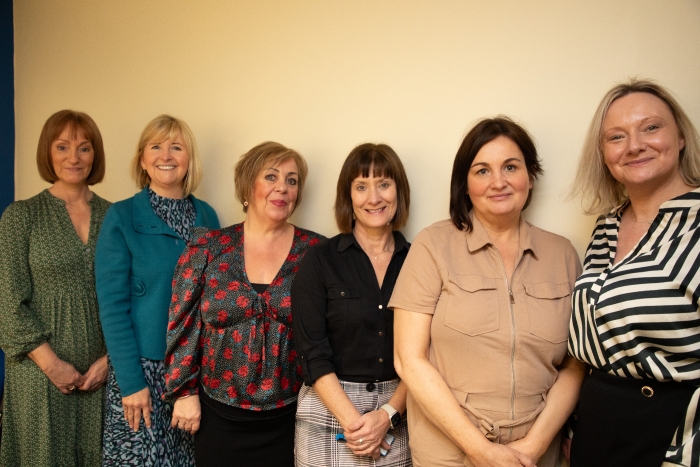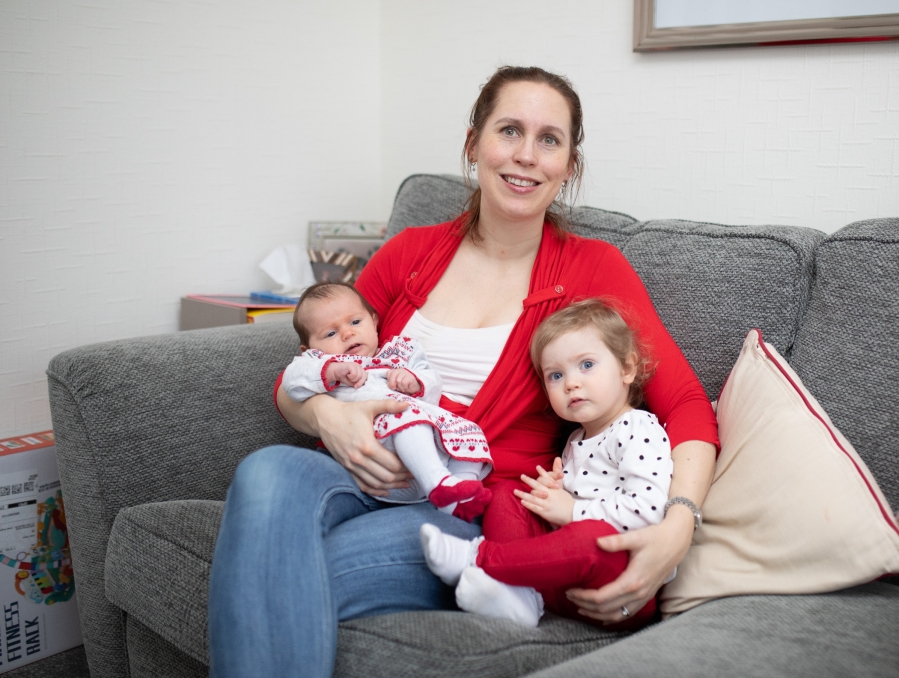The death of a child in any circumstances is both tragic and heartbreaking, but did you know that we have a dedicated team of nurses that support families and work with partner agencies following the sudden and unexpected deaths of children (SUDC) in Lancashire?
For Dr Emily Cooper, our Sudden and Unexpected Deaths of Children (SUDC) Nursing Team were there for her for many months after the sudden, unexpected and tragic death of her three-year-old son Alexander, at home on Boxing Day in 2021.
Most parents don’t want to ever imagine such a truly devastating occurrence, but our dedicated team of nurses are there to support families at the worst possible time and remain the families’ key worker throughout the statutory Child Death Review process.
Why do SUDC nurses exist?
Here in Lancashire we have the first nurse-led SUDC team in the country, since 2008. Most areas opted for a paediatric-led service back then, now there’s a mixture of both across the country.
The SUDC service began following the publication and recommendations of the Kennedy Guidelines in 2004. In 2003, three high profile criminal cases involving the prosecution of mothers for causing the deaths of their babies created public consternation. These mothers were wrongly convicted of murder and were later released through the Court of Appeal.
The Kennedy Guidelines said that following the unexpected death of a child, there needed to be a multi-agency approach to the investigation into a child’s death, and this should be led by both a lead health professional and the police.

Our lead SUDC nurse and mother-of-two is Joanne Birch. Joanne is a registered general nurse, a registered midwife, health visitor and registered school nurse. All of our SUDC team have similar nursing qualifications with experience of nursing children of all ages, with extensive safeguarding experience.
Joanne explains:
“We cover all unexpected deaths of children from birth to 18-years-old across the whole of Lancashire. We’re responsible for co-ordinating the joint agency response following an unexpected death and therefore ensure statutory guidance is followed. We work alongside the police in undertaking the investigation. We cover a seven day service, five nurses in the team and an administrator.”
When notified that a child or young person has died, a SUDC nurse will attend one of the five A&E departments in Lancashire, depending on where the child has been taken. There they meet a Detective Inspector and together they work together to establish the circumstances leading up to the incident.
“When we arrive in A&E, the parents have just been informed of the sad news. This can only be described as the worst day of any parent’s life and the immediate reactions can be varied, ranging from utter shock and disbelief, being so distressed that they are unable to speak, to anger, both towards professionals and with other family members.
We introduce ourselves to the parents and we explain that the purpose of what we are about to do is to gather as much information as possible in order to find answers as to why their child has sadly passed away. Care, compassion and sensitivity is needed in these initial discussions, as it is throughout our involvement.
I’m a nurse, but also a mum. I can’t imagine being in this position. It is every family’s right to have their child’s death fully investigated. They desperately want to know what happened and why. Whilst always having my safeguarding ‘hat’ on, it must be noted that in the vast majority of cases, where children die suddenly, nothing unlawful has happened. Parents suffering a terrible tragedy need sensitive support to deal with their loss.
One of the first things we do in A&E is to visit the child. We usually do this alongside the police and a consultant paediatrician. Our nursing and safeguarding experience is essential in being able to do this. As nurses we are looking for any health reasons for what’s happened, while the police are looking for any potential signs of suspicious circumstances. Together we keep an open mind but have to consider safeguarding issues throughout. Occasionally arrests are made and criminal investigations are undertaken where appropriate.
After this, we gather a detailed history from the parents. Again, our nursing background is essential in obtaining this information as we have experience in working with all age ranges. We need to go into a lot of detail and this can be very distressing for parents, so it needs to be done with sensitivity, at a pace appropriate for them. Some parents get upset that police are present but full explanations are given as to why. Ultimately, that we are working on behalf of the coroner to establish what has happened.
Following this, we attend the home address or where the child has taken ill, with the police.
We then co-ordinate and chair the first statutory meeting, the Joint Agency Response Meeting. All information gathered at this point is written into a report for the pathologist and the coroner.”
On-going support
Our SUDC nurses stay involved with families throughout the Child Death Review process, which could be months or sometimes years, depending on circumstances. As well as responding to child deaths they also have a role in public health and prevention and are part of numerous multi-agency groups and panels across Lancashire. They are involved in local, regional and national initiatives to prevent future child deaths and in learning lessons from each case.
Joanne added:
“We feel very privileged to undertake this role. Whilst it can be very sad and the team are touched by every case, we are also fortunate to be able to advocate for the child and provide support for families at the worst time. It can be rewarding to see how they progress as time goes on and in the majority of cases, we find a reason as to why their child died. This doesn’t take away their grief, but helps them to understand why.”
Emily’s Story
When three-year-old Alexander (pictured above) passed away, he was at home with his dad. Emily, who was pregnant at the time, was out of the house and returned to find police outside her home the day after Christmas. She recalls the horror and disbelief.
Two years after Alexander’s death, it was discovered a genetic abnormality both parents were carriers of, led to his untimely death.
Emily said:
“SUDC Nurse Jo really advocated for us. She was soon clear there were no safeguarding concerns, she helped facilitate medical access to a neuropathologist and as I was pregnant an obstetrician, and arranged cardiac screenings for the whole family. I could text her at any time and she would respond and help.
The SUDC Team was an amazing support, Jo was our voice in a time of crisis and supported me. It was so hard, I got PTSD but Jo was there for me throughout, because of her involvement we have gone on to discover that two of our children don’t have the mutation.”
Mother-of-four Emily and her husband found their oldest daughter was also a carrier of the same genetic mutation Alexander had. They now have a defibrillator at home for her and so far she’s had none of the seizures her older brother suffered from.
You may be wondering what support is available for our nurses who do this tough but rewarding role, which actually includes having access to our Talking Therapies service should they require it.
They skilfully and beautifully combine their statutory role with compassion and support, providing advocacy and dignity in death for babies, children and young people.

